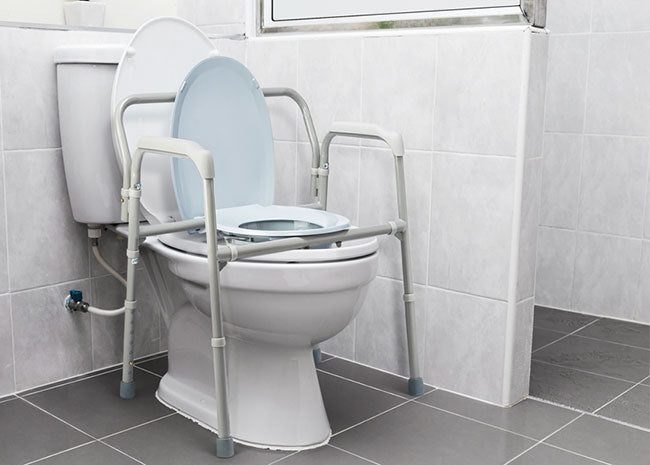Useful Tips for Taking Care of Patients with Parkinson’s Disease
It's heartbreaking to witness the debilitating effects of Parkinson's disease on somebody you deeply love. It is common for patients with Parkinson's to have problems such as stiff motions, loss of balance, and spasms, which may worsen as the condition develops.
Individuals responsible for the care of people with Parkinson's disease should make it a priority to make adjustments to their patients' everyday schedule as well as their living environments. The fitness and capabilities of a person with Parkinson's disease change with time, and as a result, so should their treatment approach. Recognizing and adjusting these shifts will serve to retain a loved one's overall health and wellbeing for as much as feasible.
Caring Tips for Parkinson’s Disease
Bedroom Modifications
Because of the growing difficulty of movement, stability, and coordination, it is critical that all items in a patient's house, particularly in their bedroom, be secure. To avoid injuries, the roller wheels on any moving furniture, such as a bed framework, should be replaced or tightly fastened in place. A patient with Parkinson's disease who is constrained to a wheelchair or utilizes another walking mobility assistance such as an parkinson walker(upright walker) to prevent falling should always secure the gears on the equipment before trying to move. A bedside railing or security grip may be placed on a patient's bed frame to help with their movement also.

Kitchen Modifications
The cooking area should be as approachable and user-friendly as feasible for those with Parkinson's disease. Conventional cupboard and drawer components might be tiny and tricky to handle. By replacing tiny knobs with bigger grips or levers, patients with spasms, weak grip ability, and reduced dexterity may get greater access to kitchen storage locations. To ensure availability, rope or cloth may be attached to existing equipment. Kitchenware, plates, cutlery, and pantry goods should be placed between the breast and hip level if allowed. This will prohibit a patient from climbing up or bending over, reducing the risk of a fall.
Bathroom Modifications
When it comes to injuries caused by trips and falls, restrooms rank high on the CDC's list of the most hazardous places to be at home. More than half of all fall-related bathroom injuries happened in or near the bath or on the toilet bowl. PD patients may benefit from appropriately constructed handrails that are fastened into walls as well as inward and outward shower spaces. Do not rely on suction cup handrails since they are not designed to carry the entire weight of an adult, making them ineffective in helping a patient avoid an accident.

Daily Routines for PD Patients
Parkinson's patients face a wide range of challenges in their everyday lives, many of which we take for granted. Late in the illness, symptoms such as akinesia (inability of motion) would become more apparent, including tremors, stiffness, balance issues, and paralysis. There are a number of drugs employed to treat Parkinson's disease that may have unpleasant side effects, including uncontrolled muscle spasms, disorientation, and tiredness. Helpful equipment and modifications are available to help individuals with Parkinson's disease retain their standard of living while also making it simpler for family members to provide care.
Eating With PD Patients
Cushioned or built-up grips are common features of specialized eating cutlery for Parkinson's sufferers. Heavy cutlery and containers can also help those who have difficulties managing their fine motor skills when eating meals. Patients with Parkinson's disease might find it easier to chop the food using a rocking action rather than a sawing action. Self-feeding would also be made simpler for patients when food is served in bowls or dishes with higher borders or edges. Additionally, rubber-bottomed kitchenware might be useful.
If a patient's symptoms are severe, the caregiver might be required to aid with hand feeding. Attempting to expedite this process will just make it more difficult. A meal should take anywhere from 30 minutes to an hour and a half to complete. Slobbering, prolonged chewing and trouble swallowing are just a few of the issues that individuals with Parkinson's disease might have during eating. In fact, as many as 80% of Parkinson's sufferers have difficulty eating. Some meals might have to be puréed or thoroughly diced to make swallowing easier and avoid suction of bits of food and saliva further into lungs from happening. Diagnosing dysphagia and recommending suitable diet adjustments requires a swallowing examination by a speech therapist. For the time being, all foods should be taken with the assistance of a caregiver.
Dressing for PD Patients
As Parkinson's disease progresses, dressing people with the disorder could be a time-consuming and labor-intensive endeavor. Muscular rigidity and severe muscle pain may make getting dressed challenging and uncomfortable. Attachments such as Velcro or magnets should be used in lieu of buttons or zippers wherever they may be. Avoid tight clothes, which may be difficult to put on and take off, in favor of loose-fitting garments. Having a shoehorn on hand might make it easier to put on footwear when sitting down. Caregivers must keep in mind to slow down and allow ample time for dressing while they are helping a loved one with everyday tasks.
Help PD Patients to Stay Mobile
"Freezing" is one of PD’s frequent problems. An excessive stiffness and nearly total lack of mobility occur as if the patient's feet are stuck to the ground while they're moving or strolling. Opt to hire a parkinson walker which is an upright walker to assist movement if your loved one often freezes. Using a laser line placed on the ground as a visual aid, PD patients then can keep going when they become stuck in their tracks.
Individuals with Parkinson's disease may find it challenging to begin an exercise program, but once they get started, they soon realize how helpful it is. In order to assist your loved one's arms and fingertips remain robust and mobile, you might advise them to squeeze a bouncy ball for brief durations of time per day. Only a few minutes of exercise each day may help people maintain healthy muscles, tissues, and bones for an extended time.
Coping With Cognitive Changes of PD Patients
In Parkinson's disorder, cognitive impairment and behavioral abnormalities are common in the mid to late phases. Caregiver flexibility and empathy are critical when their loved one's memories and judgments begin weakening. Organizing, problem-solving, prioritizing and geographical thinking might be difficult or even impossible for a person with Parkinson's disease. Maintaining a balance between encouraging independence and safeguarding their health is essential.
The capacity of a PD patient to communicate might be harmed by abnormalities in the brain structure. Most patients would have a developing motor speech dysfunction. Patients would experience a decrease in their communication ability, including the change in their voice quality and trouble selecting appropriate words. Elderly people could benefit from consulting with a speech pathologist to keep their conversational skills intact.
Older adults with Parkinson's disease might experience physical, psychological, and social difficulties, but the presence of family members may make a huge difference in their quality of life. Studying Parkinson's disease and preparing ahead could help caregivers identify changes in a loved one's health and address problems before they have a detrimental impact. PD patients who take early measures to protect their health, prolong their autonomy, and retain their functional skills will be able to age in place and enjoy a higher standard of living generally.

